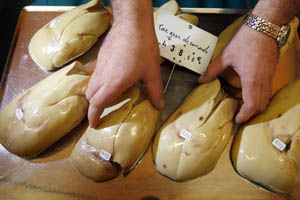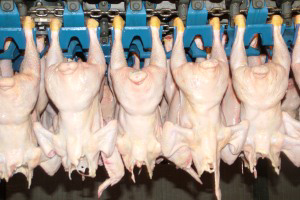Appeals made for Estonia to ban caged poultry farming

A group of lawmakers and environmentalists have submitted a collective appeal to the Estonian Agricultural Ministry suggesting to consider the pros and cons of banning caged farming.
Transition to free-range poultry farming is an all-European trend, with several countries already implementing or planning similar bans on caged farming.
“People around the world have changed their preferences in favour of free-range keeping of birds,” the lawmakers stated, emphasising that the welfare of poultry at Estonian farms requires more attention from the authorities.
During the commission meeting in June, the lawmakers also acknowledged that “there is an expectation in [Estonian] society that the poultry industry should be transferred to free-range farming”.
“The collective appeal recommends switching to free-range housing within 4-5 years,” said Arvo Aller, deputy chairman of the committee.
A huge bill
However, the reform will incur substantial costs to the industry. As Aller estimated, switching a chicken to free-range would cost its owner approximately €50. With the total number of poultry Estonian farms of 900,000 heads in 2024, this puts the reform’s price at around €45 million. It is a big question of how this step would affect the prices on store shelves.
“This is a considerable investment in a very short period of time. In a number of European countries where the transition to alternative housing systems has already taken place or is underway, the transition period is 10-15 years,” Aller said.
Bird flu fears
Moreover, the lawmakers are not entirely confident that the transition to free-range poultry is something the industry really needs now.
During a recent committee meeting, for instance, fears of controlling bird flu were raised. Committee members warned that free-range farming, with its potential for increased bird mobility, could make the Estonian food industry more vulnerable to the disease in the long run.
Bureaucracy curbs the industry’s growth
Aside from discussing caged farming, the authorities also suggested revising the existing regulations for small-scale agriculture. Under Estonian law, relatively soft veterinary rules are applied to farms keeping up to 50 hens. However, those having at least 51 must comply with the same strict regulations as big industrial farms.
Lawmakers called on the ministry to raise the threshold to lower the administrative pressure on the poultry industry and help poultry farmers boost output.













